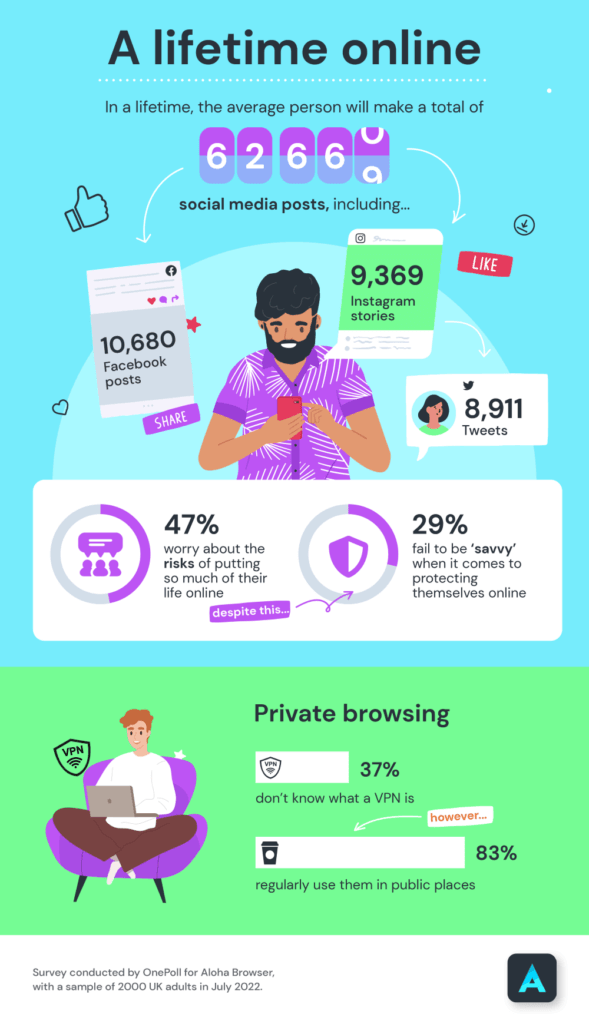
(© Urupong - stock.adobe.com)
LONDON — The modern person leaves behind an online trail of 9,828 photos, 10,811 social media posts, and 126 email addresses over their entire life.
The findings come from a new survey of 2,000 adults, revealing that the average person shares over a third of their life online (36%) — which is still viewable long after they die. Researchers, commissioned by Aloha Browser, also found that the average adult shares 276 posts on Instagram, 170 on Facebook, and 141 tweets every year. That amounts to 17,369, 10,680, and 8,911, respectively, over the average lifetime.
Currently, you're also probably juggling a couple of email addresses — likely for personal and work purposes. The average adult has two active emails — and they're likely overflowing with junk mail, since the average person signs up for more than 500 mailing lists!
Does tech savvy mean tech safe?
Despite having such a gigantic social and online “footprint,” 47 percent worry about putting so much of their lives online for the world to see. Another 29 percent don't think they're “savvy” enough to protect their online presence.
“We all put so much of our lives online nowadays because it’s considered ‘the norm,’” says a spokesperson for Aloha Browser in a statement. “But we are not giving our online privacy the attention it deserves. It really is simple to protect your privacy online but far too many people aren’t taking the simple, yet necessary steps.”
The OnePoll survey reveals that 47 percent name using secure passwords as the top way they safeguard their internet privacy. Four in 10 say they never give out their main email address or phone number and another 39 percent refuse to use public storage websites, like Google Docs or Dropbox.
Regardless of how hard they try to protect themselves, 57 percent say they still receive warnings about security breaches to their online accounts. Two-thirds worry that they'll be the victim of identity theft and one in three say it would be embarrassing if someone “tricked” them online. The average person is also on the receiving end of three online scam attempts every single month!
Moreover, 37 percent don't know what a VPN is, but a staggering 83 percent admit to using them in public spaces.
“It’s clear from the research a lot of people are still unsure about how to best protect themselves online and even the risks that are associated with being so volatile,” the spokesperson adds. “As a nation, we need to become savvier with how we use the internet and what we do with it.”












Trolling is the safest form of online discourse, especially on this stupid site
I just asked my son last night, “am I the only person in the world without a Twitter account?”
web30 and especially the utopia ecosystem will solve this problem.
Utopia ecosystem is the best way to stay in safe and to solvo many other questions!